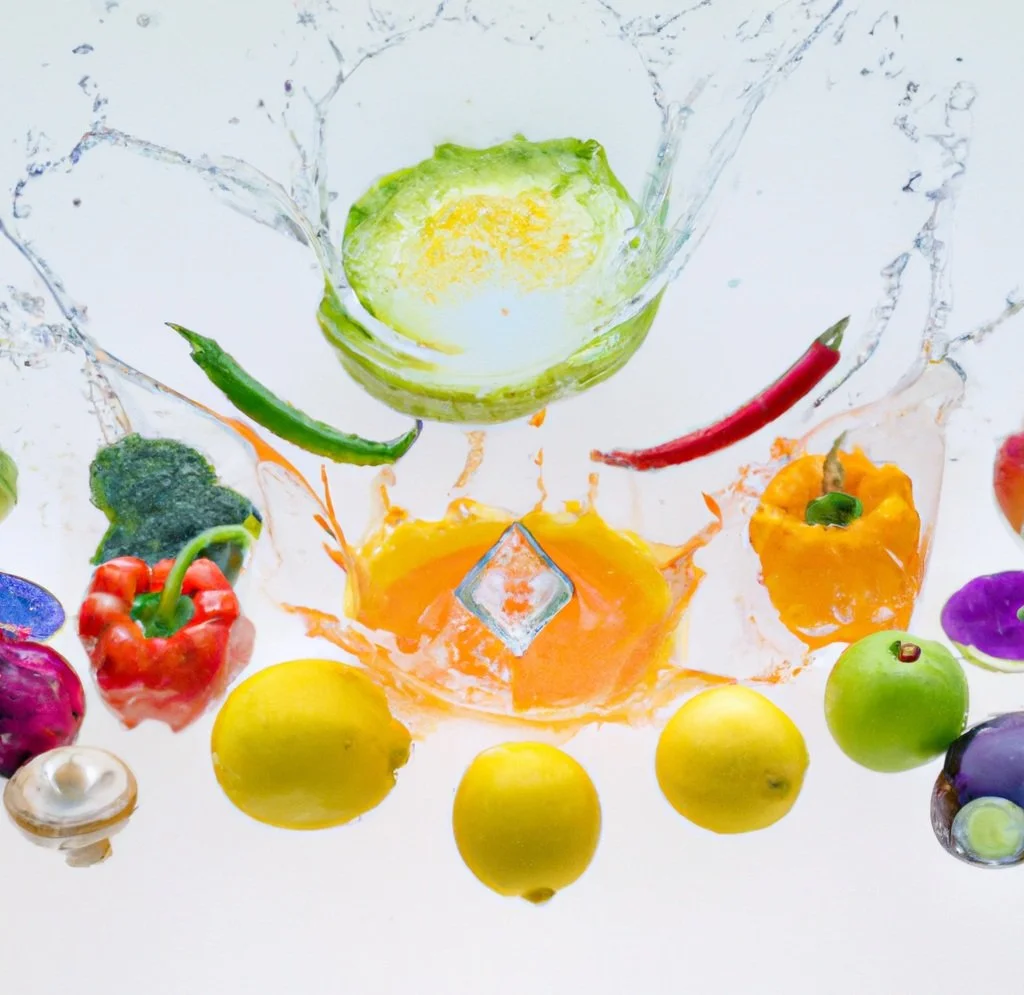What can modern day nutrition and the ancient wisdom of the Chakras learn from each other?
Modern medicine and ancient healing systems - are they irreconcilable concepts that are worlds apart? Or, in the 21st century, could their trajectories converge, even unite, under the banner of Integrative health with the emergence of fresh, holistic and evidence based health solutions?
Looking at the patterns and trends emerging in my field, I believe we’re already witnessing a paradigm shift in health, as concepts such as the modern and the ancient, the conventional and the alternative, science and spirituality, philosophy and practice, all illuminate each other with increasing resonance.
For example, modern nutritional science is making tremendous advances in research related to overall dietary patterns as well as specific foods and nutrients, and deepening our understanding of the many complex ways food interacts with our guts, our bodies and interfaces with our mental wellbeing, and ultimately how it influences our health outcomes.
What we’re learning in essence is that people feel and function best when whole or minimally processed foods make up a good part of their diet, but true thriving also comes from flexibility, enoughness, pleasure and a relaxed, sustainable relationship with food. We’ve also learned that our guts love big variety and plenty of fibre; and that plant foods can help heal, protect and enhance health.
We know these simple findings all make absolute sense to us intuitively, if only mankind hadn’t got quite so side-tracked by diet culture, convenience, or caught up in the minutiae and perfectionism of wellness culture.
In the field of research, there is also a growing body of insight into the neuroscience of psychological wellbeing and spiritual growth. This research reveals a similar story, effectively formalising the scientific truths that underlie age-old, common-sense practices and themes such as rest, meditation, connection and community, which we know intuitively enhance our mind-body wellbeing.
A new generation of GPs, a profession renowned by some as being single-minded in a conventional ‘pill for an ill’ approach, are opening their minds to lifestyle medicine, guiding patients with chronic and reversible ‘lifestyle diseases’ back to the areas of their lifestyle they can actually have an element of influence over, including food and eating, fitness, exercise, and stress management. (However, it is important to add to this, that there are plenty more determinants of health that we can’t control).
Some GPs, such as Dr Chattergee and Dr Rupy of recent TV and book fame, are following the cutting-edge approaches of Functional Medicine and Personalised Lifestyle Medicine that are founded on a ‘whole person’ approach to health and wellbeing, that nutritional therapists have been endorsing for many decades.
This new frontier of medical professionals, far from being skeptical of natural approaches to healing such as nutritional therapy and wellbeing coaching, have a deep appreciation of the potential benefits in helping some people reverse or manage illness.
This all comes at a time when it is widely recognised that the NHS is in need of reform. Whilst it is highly valued for its acute and reactive health solutions, the burden of preventable lifestyle diseases is overwhelming. And as a country I believe we need, and will see in time, more emphasis on preventative and proactive healthcare.
Whilst we have a long way to go, the good news is the public is already making steps, as simultaneously interest in eating well and nutrition is growing, as well as interest in the Vedic sciences of Ayurveda and yoga, naturopathy, Chinese Traditional Therapy, Reiki, reflexology and all manner of healing therapies.
It seems in an ever-changing, fast-paced and stress-inducing world, more people than ever are looking to cultivate balance and reconnect with their intuition about what our bodies, minds and spirits really need to flourish. Interest in ancient healing practices has reawakened and these are becoming an indispensable part of helping us to holistically manage our ‘whole’ wellbeing.
It’s almost as if modern science and conventional health are finally catching-up with the wisdoms of time-tested mind-body practices. Dr Deanna Minich, a world-renowned nutritionist and functional medicine doctor, researcher yoga teacher, and artist - and my Food & Spirit™ teacher - is a pioneer in this area - already teaching a ‘whole-self’ approach to nourishment to practitioners like myself.
Based on the seven Chakras fused with functional medicine and the latest nutritional research, Food & Spirit™ is exemplary of a truly integrative approach that bridges the gaps between science, spirituality, and art in medicine.
It is an exciting time for health and wellbeing, with an upsurge in public awareness and engagement. And this healthily sets the scene for a universal redefinition of health and wellbeing - beyond the physical realm and into all dimensions of our wellbeing.
Seven weeks, seven paths to nourish body and mind
If you enjoyed this blog and want to get more of a flavour for the Food & Spirit™ seven systems of health approach that I use, please check out the weekly blog I wrote whilst I was training > Start here.







